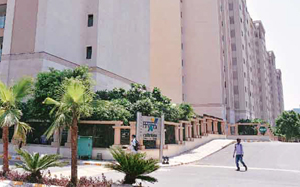New Delhi, Sep 9: A Saudi diplomat, who has been accused of raping two Nepalese women, today met senior External Affairs Ministry officials and protested the action by Gurgaon police at his residence which he claimed was in violation of the Vienna Convention.
According to official sources, the diplomat, who is of the rank of First Secretary in the Embassy of Saudi Arabia, met Joint Secretary Thanglura Darlong in the MEA and protested against the "police intrusion".
"The diplomat protested over the 'intrusion' by Haryana police into his house which he maintained was in violation of 'all diplomatic conventions'," sources said.
The JS conveyed to him that police was not aware that it was a house of a diplomat and they were acting only on the reports that two Nepalese women have been kept there against their will and being ill-treated.
Meanwhile, the embassy of Saudi Arabia issued a statement terming as "false" the allegations of sexual assault against the diplomat.
"The embassy strongly stresses that these allegations are false and have not been proven," a statement from the embassy said. The statement said the embassy has also brought to the notice of the concerned officials in the MEA the "unwarranted media briefings before investigations are complete, and has protested the police intrusion into a diplomat's house against "all diplomatic conventions."
Article 30 of the Vienna Convention states that ‘The private residence of a diplomatic agent shall enjoy the same inviolability and protection as the premises of the mission'.
The embassy would, however, wait for clarification from the MEA about the matter and the outcome of the investigations into the allegations, it said.
Two Nepalese women have alleged that they were confined and raped by the diplomat and his guests repeatedly in a flat in Gurgaon on the outskirts of the national capital after which the local police filed an FIR in the matter.





Comments
Add new comment